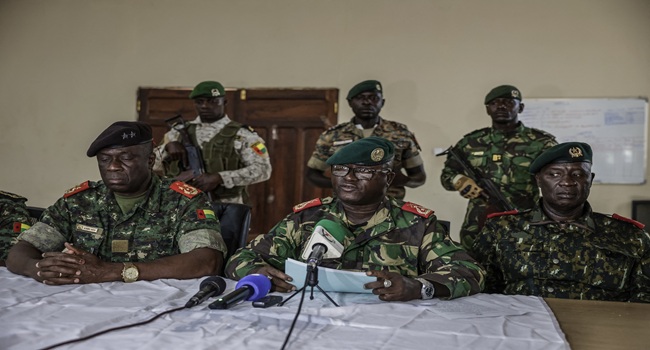Election-linked internet shutdown cost Tanzania Sh30.7 billion, report reveals

PIN reported that the five-day nationwide internet blackout, between October 29 and November 3, cost Tanzania about $72 million (Sh9.3 billion), translating to around $13.8 million(Sh1.8 million) a day.
Tanzania's economy has lost more than $238 million (Sh30.7 billion) due to recent election-related internet disruptions and the continued suspension of social media platform X, digital rights organisation Paradigm Initiative (PIN) has revealed.
In a statement, PIN noted that the Tanzanian government's decision to shut down the internet during the country's October 29 general elections and its ongoing restrictions on X have caused widespread economic harm, which has disrupted trade, productivity and access to online services.
More To Read
- Karua accuses AU of double standards over Guinea-Bissau coup, Tanzania election crisis
- Tanzanian authorities orders petrol stations to limit fuel sales to boda bodas, tuk-tuks ahead of planned December 9 protest
- Tanzania challenges EU debate on Tundu Lissu and post-election crisis
- ICC urged to probe Tanzania over post-election civilian killings
- Tanzania opposition leader Lissu accuses President Samia of ignoring electoral reforms, fuelling violence amid political crisis
- US Senate Committee on Foreign Relations calls for probe into Tanzania election violence
Citing data from the NetBlocks Cost of Shutdown Tool (COST), PIN reported that the five-day nationwide internet blackout, between October 29 and November 3, cost Tanzania about $72 million (Sh9.3 billion), translating to around $13.8 million(Sh1.8 million) a day.
Further, PIN noted that the ongoing suspension of X (formerly Twitter) since May 21, 169 days ago, has set back Tanzania an additional $165.8 million (Sh21.4 billion), which translates to roughly $1 million (Sh129.2 million) per day.
"Combined economic loss translates to over $238 million (Sh 30.7 billion) in direct losses to productivity, trade, and digital services," said PIN.
"These disruptions are economically devastating and deeply damaging to digital rights," the group added, noting that the losses are also affecting health, education, security coordination and mobile payments.
The group added that although internet access was restored on November 3, many users still experience slow speeds and restricted access in some areas, warning that such disruptions undermine trust in Tanzania's digital economy and may deter investors.
"Every shutdown chips away at trust, investment, and human potential," said Gbenga Sesan, Executive Director of Paradigm Initiative.
"Governments must realise that in today's world, connectivity is the foundation of opportunity. Shutting down the internet silences citizens, stalls economies, and sets entire nations back."
PIN also criticised the Tanzanian government for defying regional and international human rights standards, including Articles 9 and 22 of the African Charter on Human and Peoples' Rights, which protect freedom of expression and the right to development.
The group likewise referenced Resolution 580 of the African Commission on Human and Peoples' Rights, which calls on governments to ensure unrestricted access to the internet during election periods.
"PIN calls on the Government of Tanzania to comply with human rights by immediately restoring internet access to X and all restricted platforms and ceasing further internet or platform disruptions, especially during democratic processes," the group said.
It also urged Tanzanian authorities to ensure that internet service providers (ISPs) in the country maintain transparency whenever they are ordered to disrupt services.
Top Stories Today















































